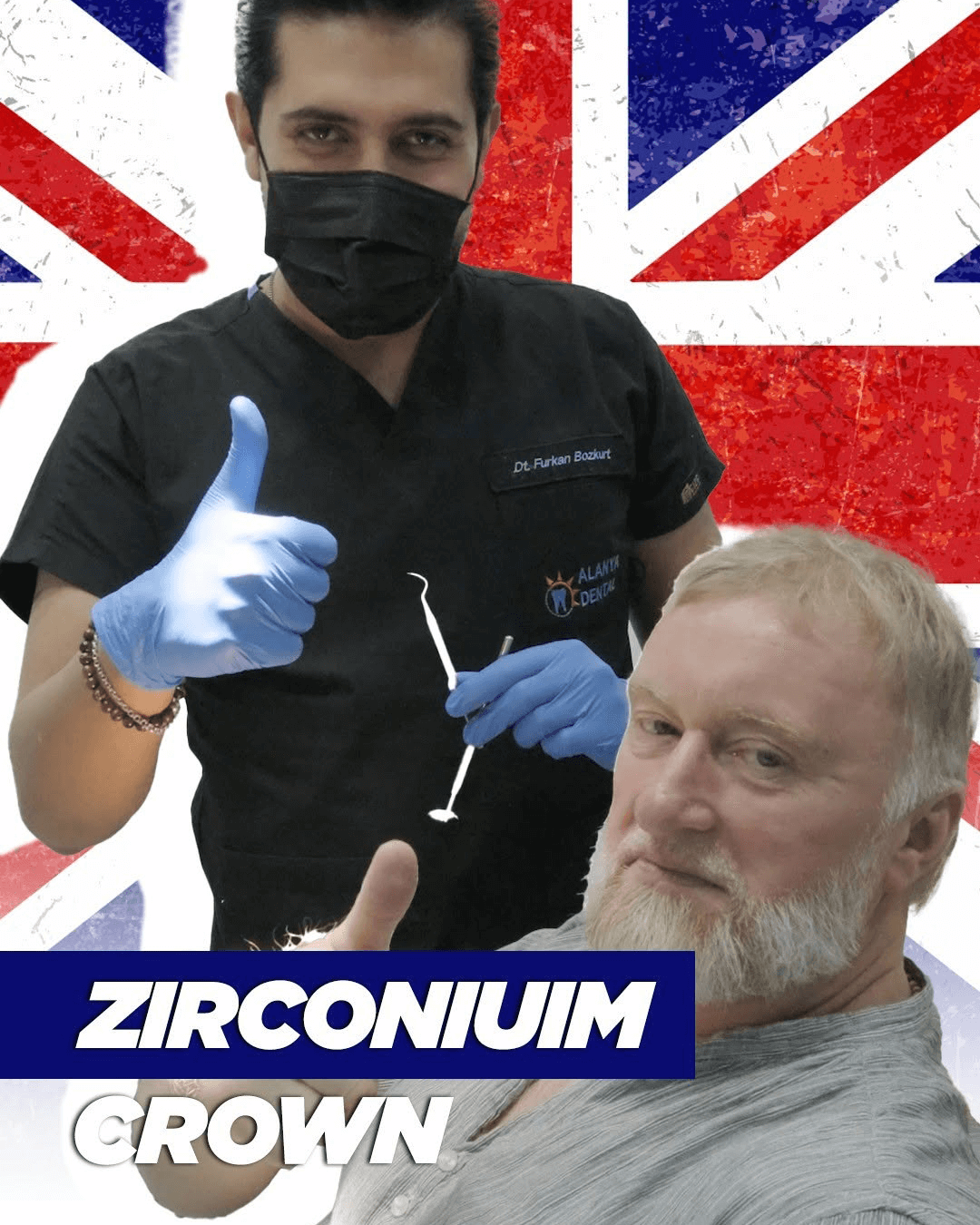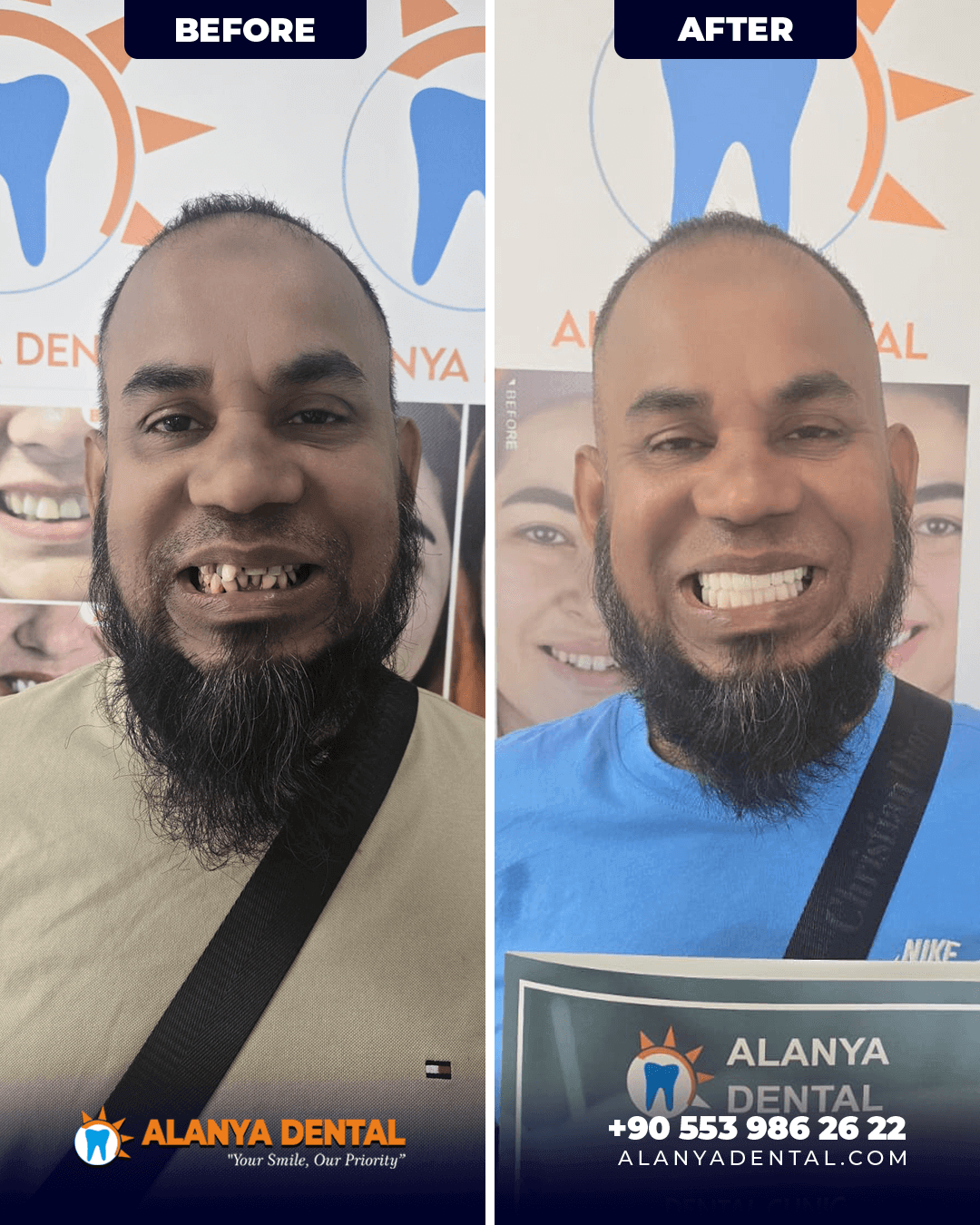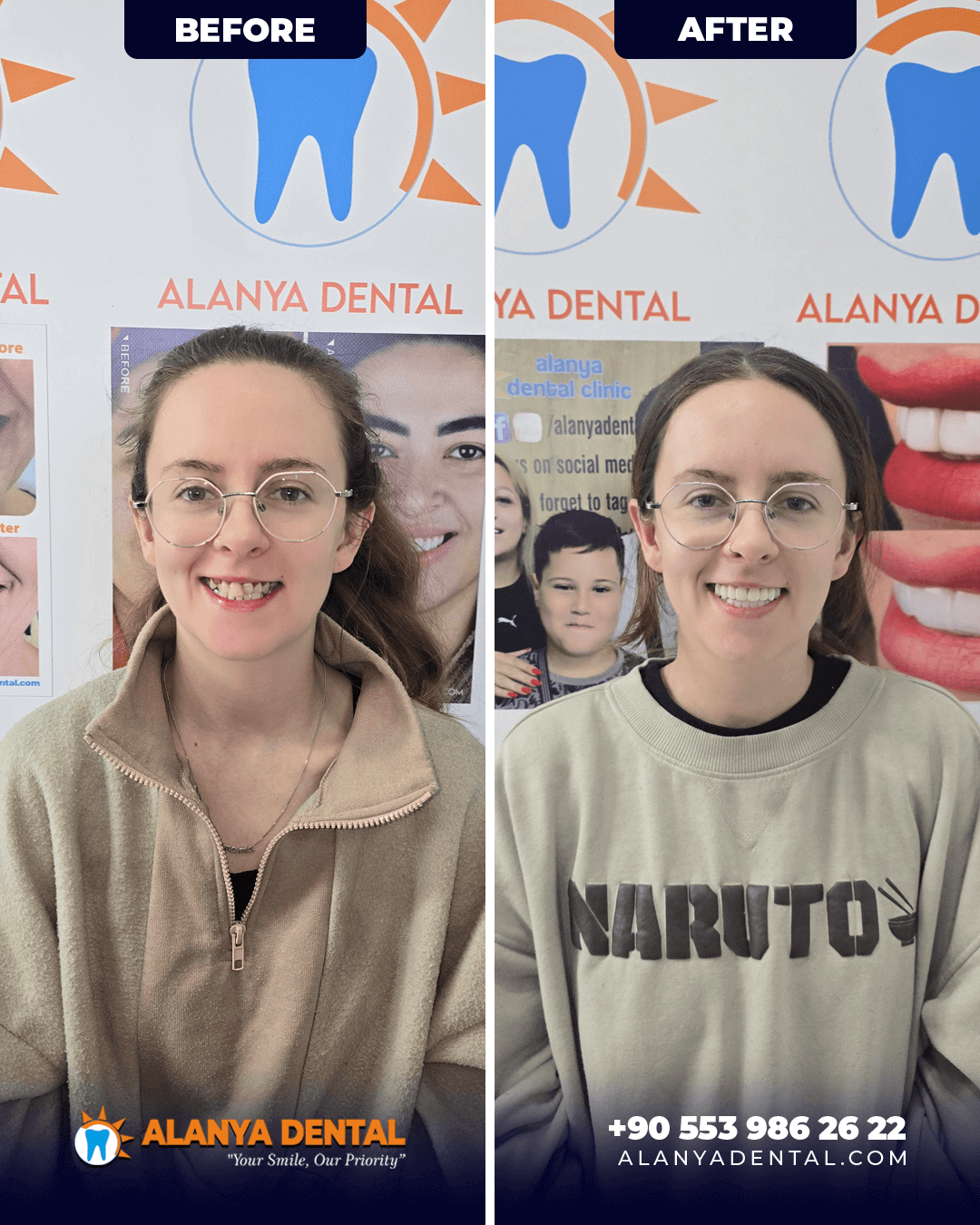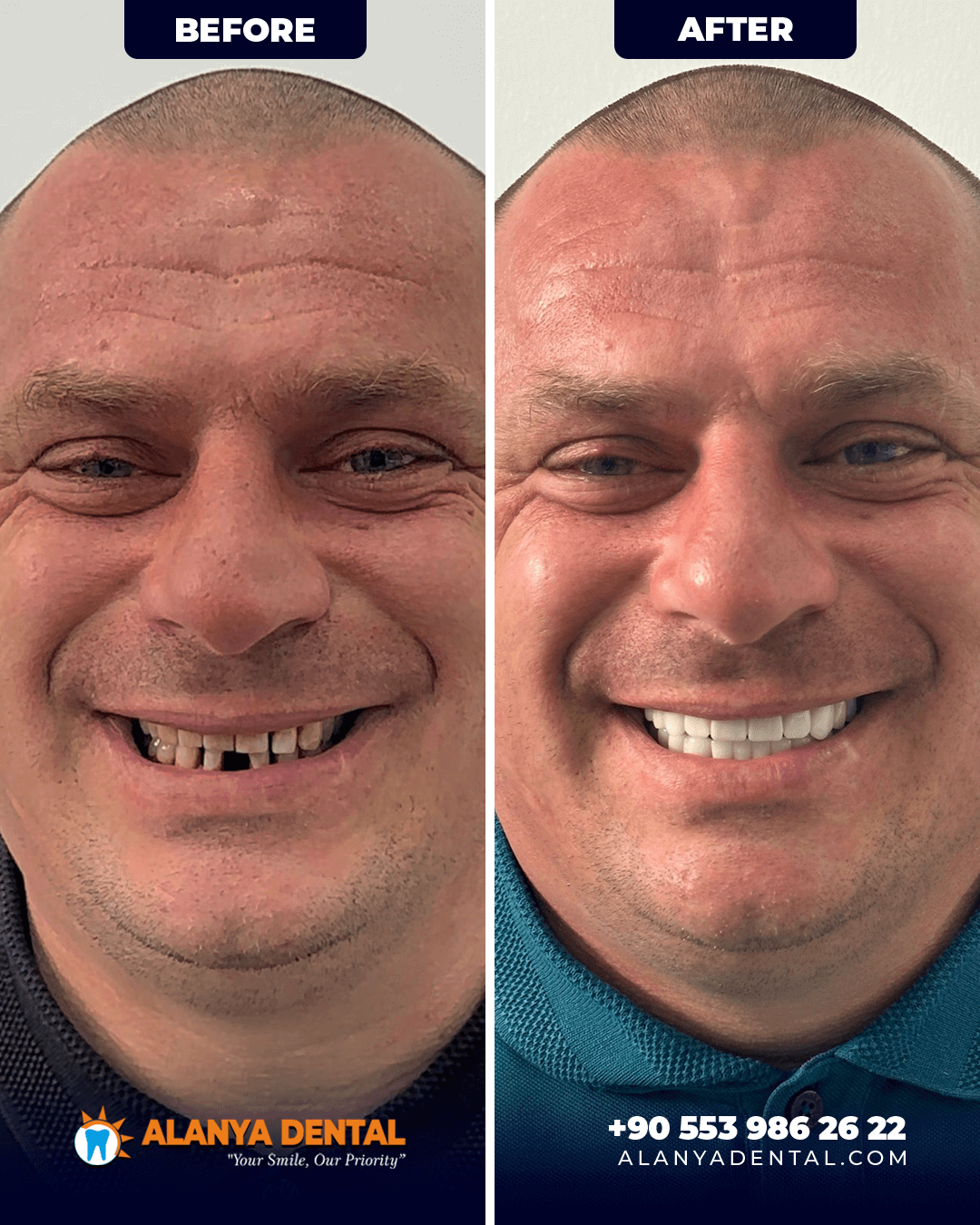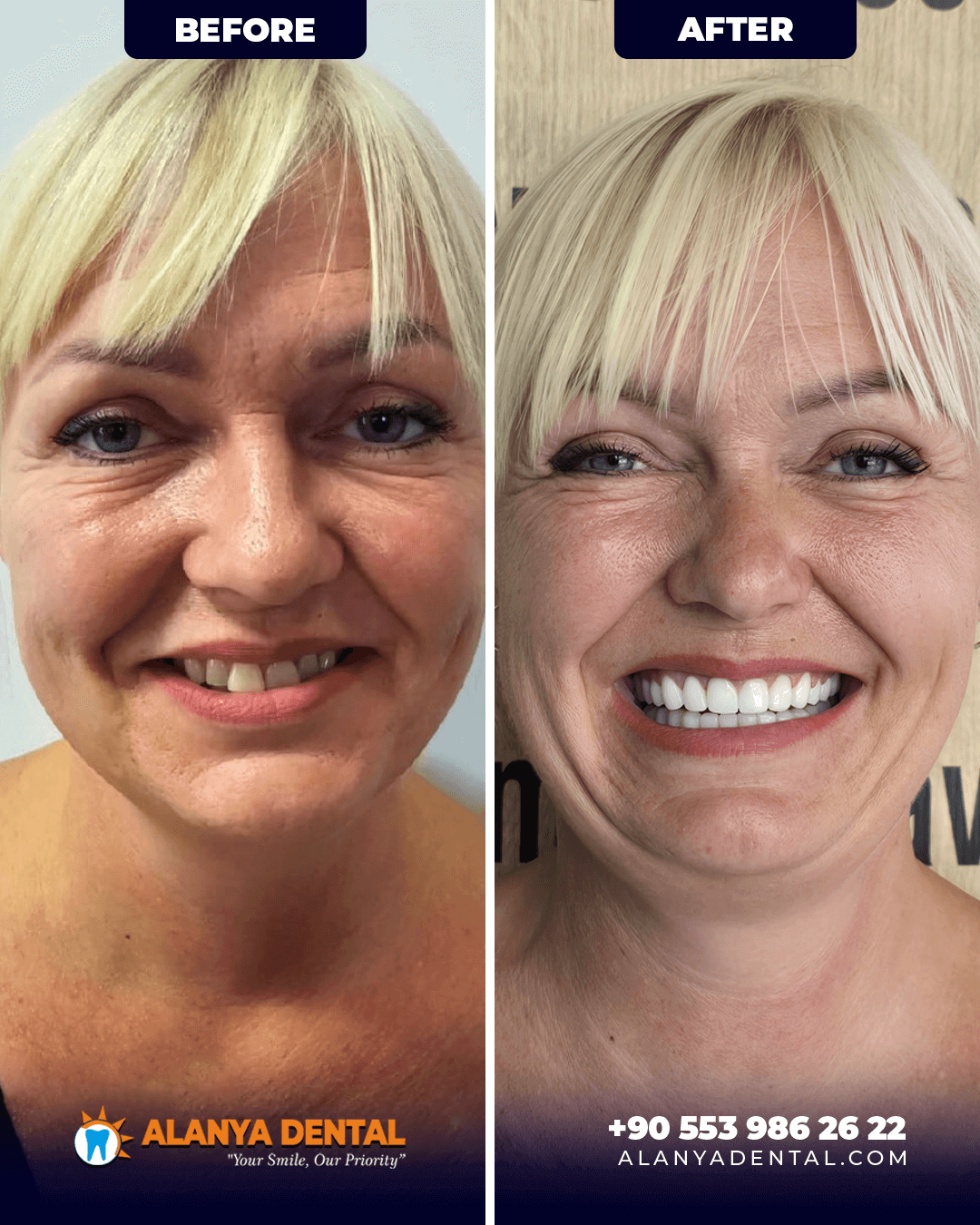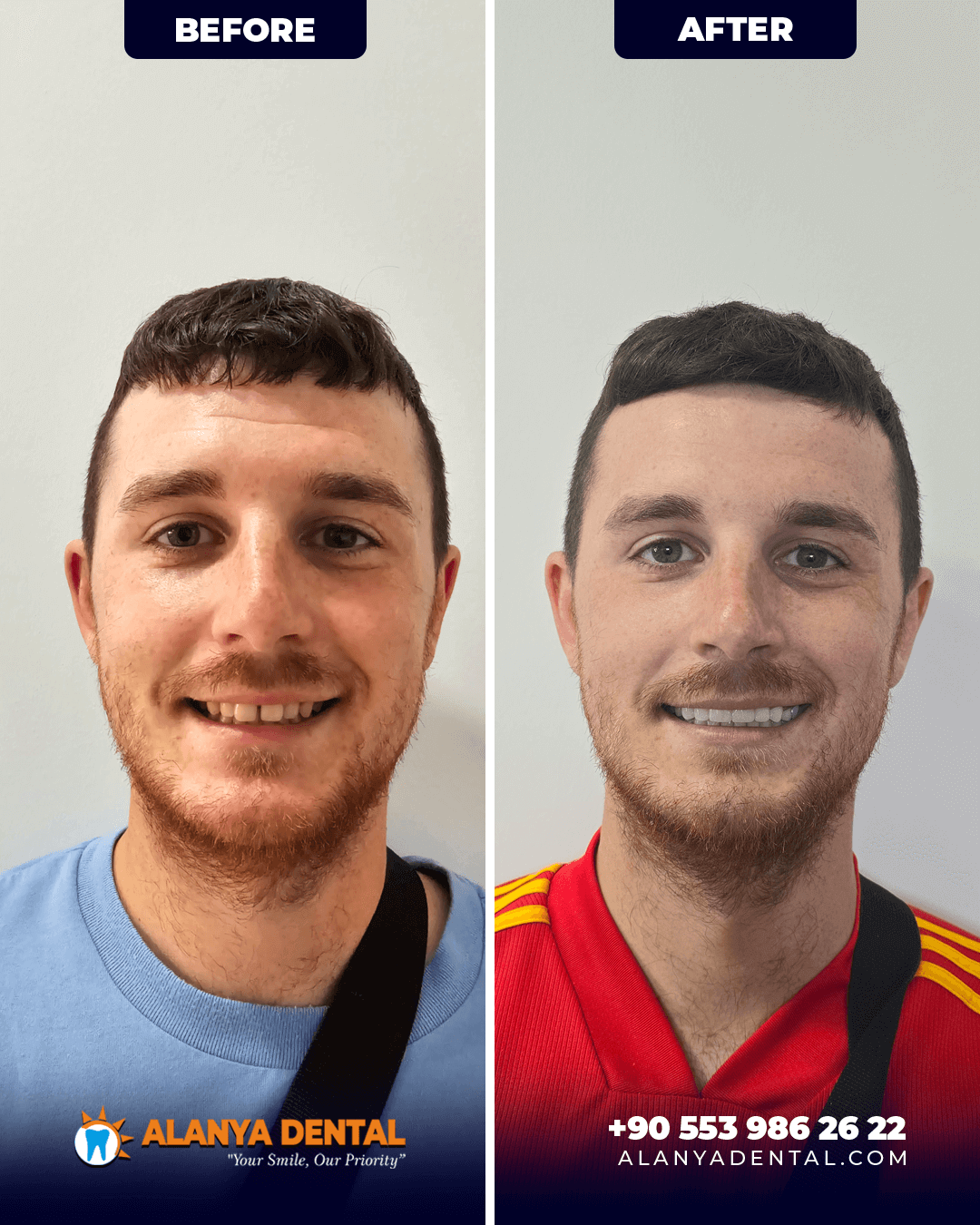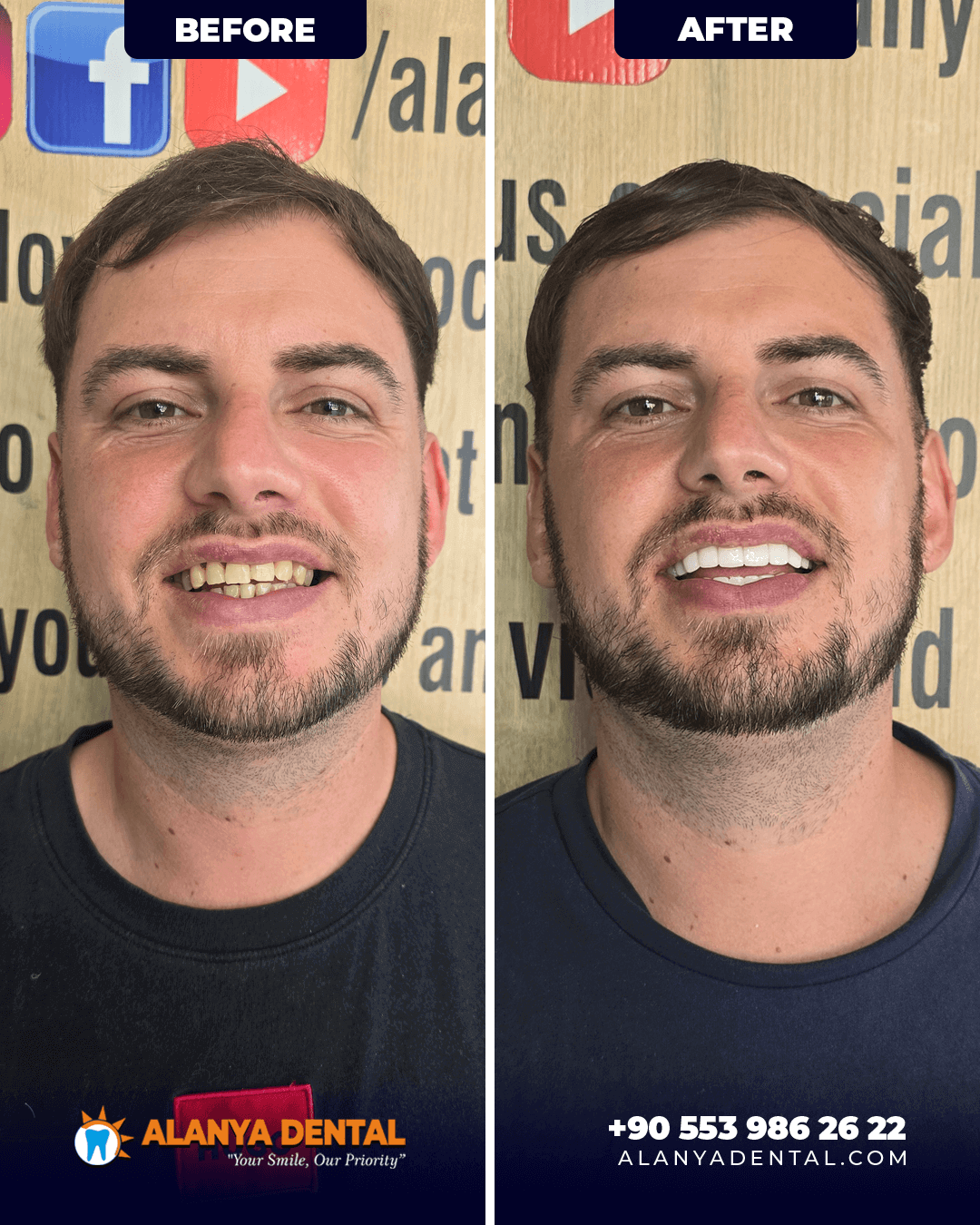Porcelain Dental Veneers in Turkey

Porcelain Dental Crowns in Turkey
Porzellan-Veneers sind eine moderne Behandlungsmethode zur Verbesserung des Aussehens von Zähnen und zur Behebung struktureller Probleme. Speziell hergestellte, dünne Porzellanschichten werden präzise auf die Zahnoberfläche geklebt. Mit diesen Veneers können Farbe, Form und Größe der Zähne verändert werden. Ihre große Ähnlichkeit mit natürlichen Zähnen ist einer der größten Vorteile von Porzellan.
Vor dem Eingriff führt der Zahnarzt eine umfassende Untersuchung durch. Dabei werden der aktuelle Zustand der Zähne, die Kieferstruktur und die ästhetischen Erwartungen beurteilt. Anschließend werden entsprechende Messungen vorgenommen und die Veneers im Labor vorbereitet. Die beim Einsetzen verwendeten Klebstoffe gewährleisten eine dauerhafte und sichere Befestigung.


Types of Porcelain Dental Crowns
Porcelain veneers are produced in different types depending on the technique and material used. Laminate veneers are one of the thinnest types of veneers. This method involves minimal removal of the front surface of the tooth. Laminate veneers are highly effective in correcting discoloration and deformities in front teeth.
Because they do not contain metal supports, all-porcelain veneers reflect light like natural teeth. They are preferred by those who want a natural look in their front teeth. Metal-supported porcelain veneers, on the other hand, are distinguished by their durability. The expert staff at Alanya Dental Clinic conducts a detailed evaluation to determine the appropriate type of veneer for each patient.
Am I Suitable for Porcelain Dental Crowns?
Porcelain veneers are an effective method for addressing aesthetic and functional issues. However, this procedure may not be suitable for everyone. First and foremost, teeth and gums must be in good health. Any existing cavities or gum disease should be treated before veneers.
Those experiencing discoloration, fractures, cracks, or deformities benefit most from this procedure. Those who clench or grind their teeth are at risk of damage to the veneers. In these cases, the use of protective plate is recommended.
Porcelain veneers offer long-term results for individuals who maintain regular oral hygiene and brush and floss regularly. Veneers do not protect against decay, so continued care of natural teeth is essential.

How Are Porcelain Dental Crowns Made?
In the first stage, the patient's dental structure and oral health are thoroughly examined. Any cavities, cracks, or other structural issues are treated first. Then, a very thin layer is removed from the front surface of the teeth. This process is necessary to ensure the veneers fit seamlessly into the natural tooth structure. Impressions are taken of the teeth, and custom porcelain veneers are created in the laboratory.
The prepared veneers are placed on the teeth during try-on to check their fit. Once the color, shape, and surface structure are matched to the patient's expectations, the permanent bonding phase begins. The veneers are secured to the teeth using special dental adhesives. During this phase, the gloss and surface smoothness of the porcelain are adjusted to achieve the closest appearance to natural tooth enamel.
In Which Cases Are Porcelain Crowns Used?
Porcelain dental veneers offer a solution for many people looking to improve the appearance and structure of their teeth. This method is used when teeth are discolored, chipped, worn, or misshapen. Available for both front and back teeth, veneers are known for their long-lasting and natural appearance.
Porcelain veneers are an effective solution for persistent stains on teeth that haven't yielded results despite whitening. They are also preferred for restoring aesthetics and function to teeth broken by trauma or accidents. This method is used to close gaps or balance the size of misaligned teeth.


Advantages of Porcelain Dental Crowns
Porcelain dental veneers are a preferred method for improving dental aesthetics and function. They stand out for their long-lasting properties, near-natural results, and stain resistance. Here are the advantages of porcelain dental veneers:
• Aesthetic results similar to natural teeth
• High colorfastness
• Resistance to stains and discoloration
• Abrasion resistance
• Biocompatible material in the mouth
• Long-term usage
Porcelain veneers reflect light like natural tooth enamel, creating an aesthetically pleasing smile. Their high colorfastness ensures they maintain their original appearance for a long time. They are minimally affected by stain-causing factors like coffee, tea, or smoking.
What Should I Pay Attention to After Porcelain Dental Crowns?
To maintain the results achieved after porcelain veneer application, meticulous daily oral care must be maintained. The lifespan of veneers depends on the patient's care habits and regular follow-up visits. Here are some important points to consider.
• Brushing your teeth at least twice a day
• Using dental floss and an interdental brush
• Avoiding breaking hard foods with your teeth
• Controlling teeth clenching or grinding habits
• Regular dental checkups
Regular brushing twice a day is essential for both natural teeth and veneers. Floss and an interdental brush prevent plaque buildup around the veneer edges. Crushing hard-shelled foods directly with your teeth can damage the porcelain surface.

Porcelain Dental Crown Prices in Turkey
Porcelain dental veneers are a long-established, safely used restoration method in dentistry. The price range varies depending on many factors, including the quality of the material used, the application technique, and the dentist's expertise. During the manufacturing process, the porcelain material is crafted to best reflect the natural structure of the tooth. After measurements are taken of the tooth surface, a personalized design is created in the laboratory. Each patient's tooth structure, color, and shape are unique.
The location of the clinic can also influence pricing. Prices may vary among clinics operating in major cities or tourist areas. The type of porcelain used is also important. There are differences in quality and appearance between all-ceramic porcelain and metal-backed porcelain. Alanya Dental Clinic provides detailed information to its patients throughout the process and manages the treatment process transparently.


What Are Porcelain Dental Crowns?
Porzellan-Veneers sind eine Methode, die Vorderseite von Zähnen zu verkleiden und so sowohl Aussehen als auch Funktion zu verbessern. Bei diesem Verfahren werden dünne Porzellanschichten mit speziellen Klebstoffen auf der Zahnoberfläche befestigt. Das verwendete Porzellanmaterial ähnelt in Lichtdurchlässigkeit und Farbe dem natürlichen Zahnschmelz.
Der Bewerbungsprozess beginnt mit einer Beurteilung des Zahnzustands des Patienten. Die Planung erfolgt unter Berücksichtigung der vorhandenen Zahnstruktur, des Farbtons und der ästhetischen Erwartungen. Nach der Abformung werden im Labor individuelle Veneers hergestellt. Die vorbereiteten Veneers werden sorgfältig auf die Zahnoberfläche aufgebracht.
FAQ's
Frequently Asked Questions
The lifespan of porcelain veneers can be extended with proper care and regular checkups. Generally, porcelain veneers can last between 10 and 15 years without any problems. However, this lifespan is directly related to a person's oral hygiene, eating habits, and how they use their teeth. Crushing hard foods, teeth grinding, or harsh impacts can shorten the lifespan of a veneer. Because porcelain has a hardness level closest to that of tooth enamel, it maintains its shape for many years.
Deterioration of the tooth surface, aesthetic concerns, or functional issues necessitate the need for porcelain veneers. In cases where natural tooth enamel is damaged, porcelain veneers provide both a protective and restorative solution. A veneer completely covers the front surface of the tooth, concealing cracks, breaks, or deep discoloration.
Porcelain veneers are also preferred in smile design applications. Custom-made to fit a person's facial structure, lip line, and tooth alignment, these veneers offer a natural-looking result. This procedure is preferred by individuals with deformed teeth, gaps in their front teeth, or those whose old fillings are aesthetically undesirable.
The time it takes to fabricate porcelain veneers varies depending on the number of teeth to be treated, the type of porcelain chosen, and the laboratory's workload. It's typically completed in two to three sessions. The first session includes an examination, impressions, and preparation of the tooth surface. Once the impressions are sent to the laboratory, the porcelain fabrication process begins.
The laboratory phase involves the custom fabrication of the porcelain veneer. This process is crucial for color matching and the integration of the tooth shape with the face. As the number of teeth to be treated increases, the preparation time may also increase

Book Your Free Consultation Today!
Free Consultation

Healthy Teeth, Happy Smile!
Healthy teeth are the foundation of a confident and radiant smile — because when your teeth are healthy, every smile shines brighter and makes you feel happier inside and out.
Why Booking a Dental Appointment at Alanya Dental Clinic is Essential for Your Oral Health
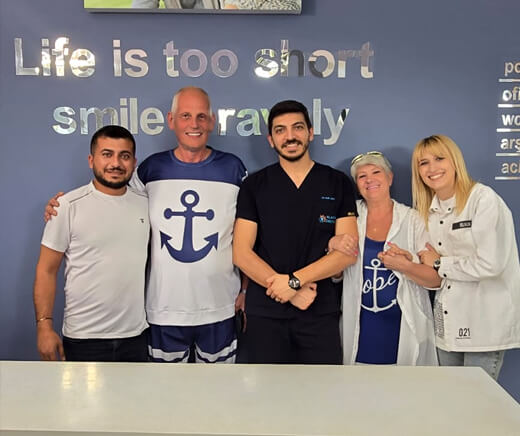

 TR
TR DE
DE Teeth Cleaning
Teeth Cleaning 


